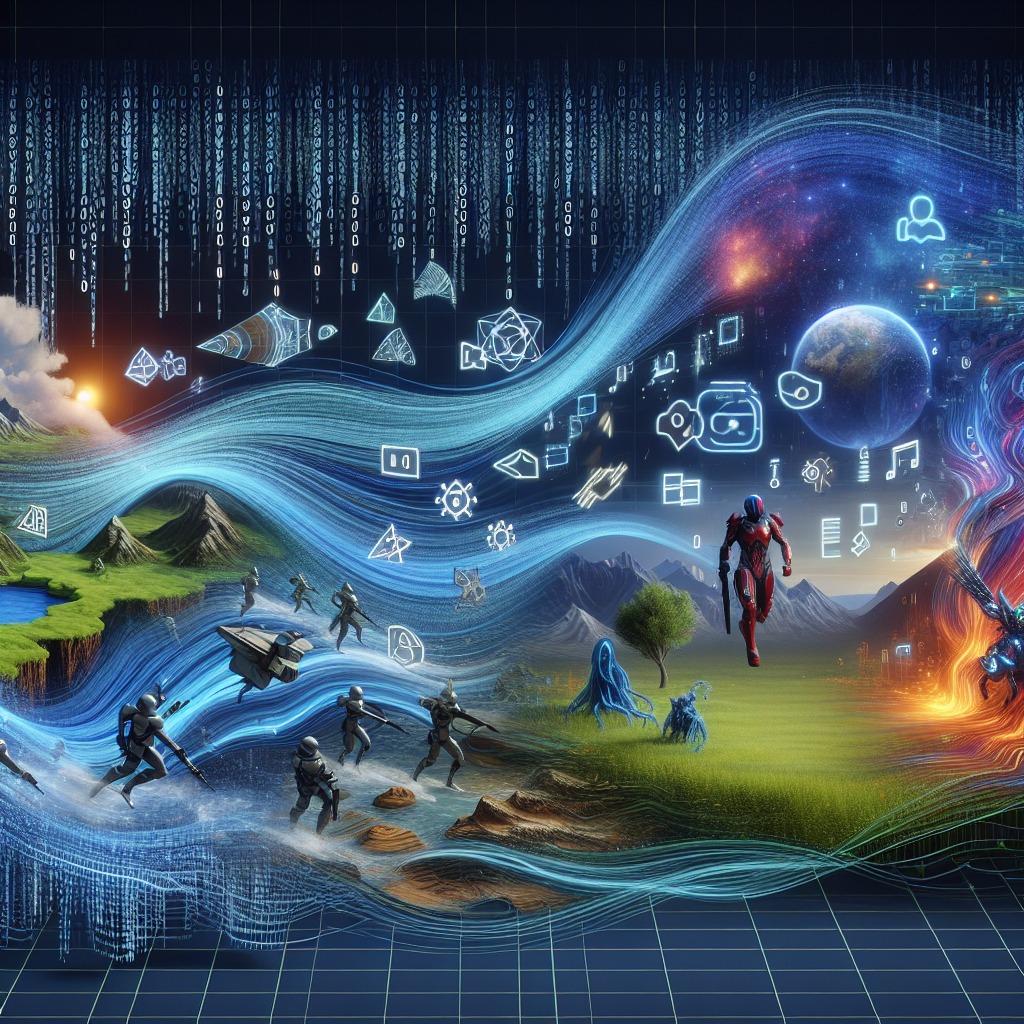The Rise of AI-Generated Content in Video Games
In recent years, artificial intelligence (AI) has been making significant strides in various industries, including the world of video games. One particularly exciting development is the rise of AI-generated content in video games. From procedurally generated levels to dynamically adapting enemy behavior, AI is revolutionizing the way games are created and played.
One of the most prominent examples of AI-generated content in video games is procedural generation. This technique involves using algorithms to generate content, such as levels, environments, or even entire game worlds, on the fly. This allows developers to create vast, intricate worlds without the need for painstaking manual labor. Procedural generation has been used in games like No Man’s Sky, where an AI algorithm creates a virtually infinite number of unique planets for players to explore.
Another area where AI-generated content is making waves is in the realm of dynamic storytelling. Traditionally, game narratives are fixed and linear, with players following a predetermined path from beginning to end. However, AI is now being used to create dynamic, branching narratives that adapt to player choices and actions. Games like Detroit: Become Human and The Witcher 3: Wild Hunt use AI algorithms to create complex, player-driven stories that change based on the player’s decisions.
AI is also being used to create more realistic and intelligent non-player characters (NPCs) in video games. In the past, NPCs were often limited in their behavior and interactions, following pre-scripted routines and responses. With AI, developers can create NPCs that react dynamically to the player’s actions, learning and adapting over time. This can lead to more immersive and engaging gameplay experiences, as players interact with NPCs that feel more like real individuals.
Furthermore, AI-generated content is being used to enhance the visual and audio aspects of video games. AI algorithms can be used to generate realistic textures, animations, and sound effects, creating a more immersive and lifelike gaming experience. Games like Red Dead Redemption 2 and The Last of Us Part II use AI to create stunning visuals and realistic audio that enhance the overall atmosphere of the game.
Overall, AI-generated content is transforming the way video games are created and experienced. By leveraging the power of AI, developers can create more complex, engaging, and immersive gaming experiences that push the boundaries of what is possible in the medium.
FAQs
Q: How does AI-generated content affect the overall quality of video games?
A: AI-generated content can enhance the overall quality of video games by creating more varied, dynamic, and immersive gaming experiences. By using AI algorithms to generate content, developers can create larger, more intricate game worlds, more realistic NPCs, and more engaging narratives that adapt to player choices.
Q: Can AI-generated content replace human creativity in game development?
A: While AI-generated content can automate certain aspects of game development, it cannot replace human creativity entirely. Game developers still play a crucial role in designing the overall vision and gameplay mechanics of a game. AI can be used as a tool to assist developers in creating content more efficiently and effectively, but human creativity remains essential in shaping the final product.
Q: Are there any ethical concerns surrounding AI-generated content in video games?
A: There are some ethical concerns surrounding AI-generated content in video games, particularly in terms of data privacy and bias. AI algorithms rely on large amounts of data to generate content, which can raise concerns about data privacy and security. Additionally, AI algorithms can inherit biases from the data they are trained on, leading to potentially discriminatory or harmful content. It is important for developers to be mindful of these ethical considerations and ensure that AI-generated content is created and used responsibly.
Q: What are some examples of AI-generated content in popular video games?
A: Some examples of AI-generated content in popular video games include procedurally generated levels in games like No Man’s Sky, dynamic storytelling in games like Detroit: Become Human, and intelligent NPCs in games like Red Dead Redemption 2. These games use AI algorithms to create content that adapts to player actions, creating more immersive and engaging gaming experiences.

